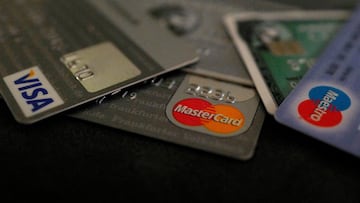What is a credit card hold? How does it work and how can it affect you?
A credit card hold temporarily reserves funds from your credit limit for a pending transaction, reducing your available credit until the hold is released.


A credit card hold, also known as an authorization hold, is a common practice used by merchants to ensure they receive payment for goods or services rendered. It works by temporarily reserving a portion of your available credit limit on your credit card, effectively putting a hold on those funds until the transaction is completed.
While credit card holds are typically associated with hotels, car rentals, and gas stations, they can be implemented by any merchant where the final transaction amount is not immediately known.
How credit card transactions work
When you make a purchase or reservation, the merchant requests authorization from your credit card issuer for a certain amount of funds. This amount is often higher than the expected final bill to account for any additional charges or incidental expenses. The issuer then places a hold on these funds, effectively reducing your available credit limit by the authorized amount.
The hold remains in place until the transaction is finalized, which typically occurs when the merchant submits the actual charge for payment. Once the transaction is processed, the hold is released, and the actual purchase amount is deducted from your available credit limit.
Potential effects of a credit card hold
Related stories
Since the authorized amount is held against your credit limit, you may have less available credit to use for other purchases until the hold is released. In some cases, holds can remain on your account for several days.
If you’re not aware of the hold and attempt to make additional purchases that exceed your available credit limit, you could incur overdraft fees or have your transaction declined.

